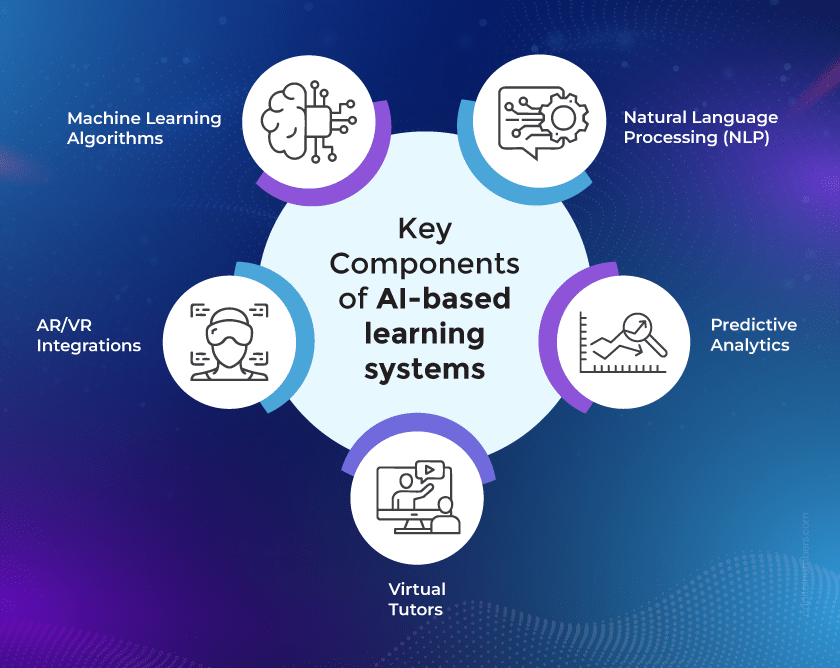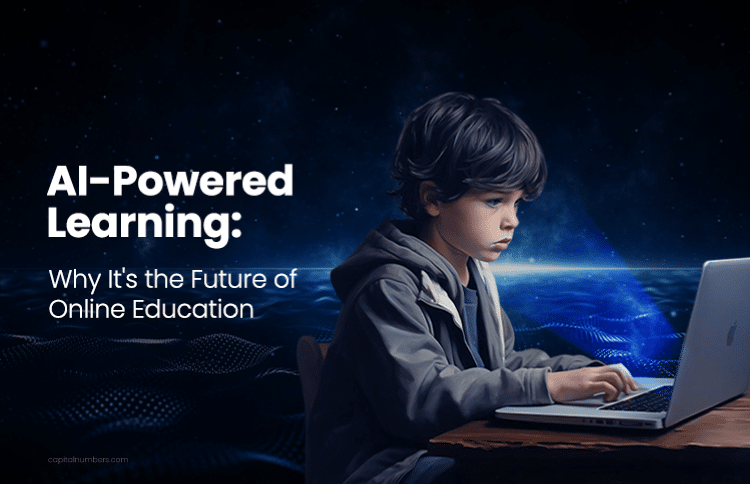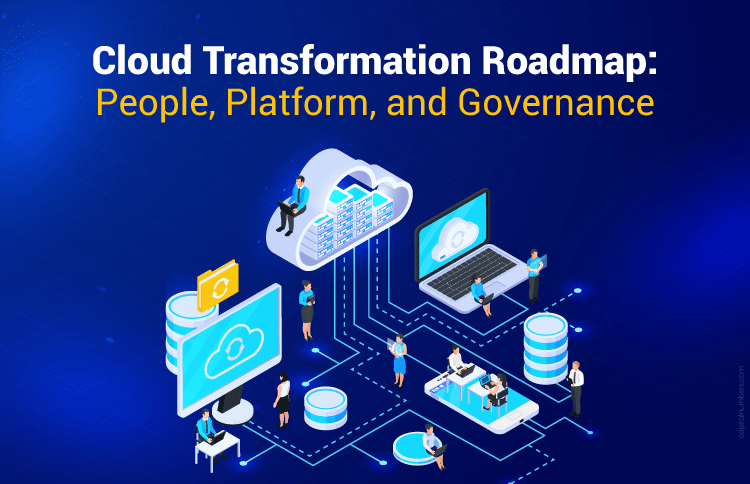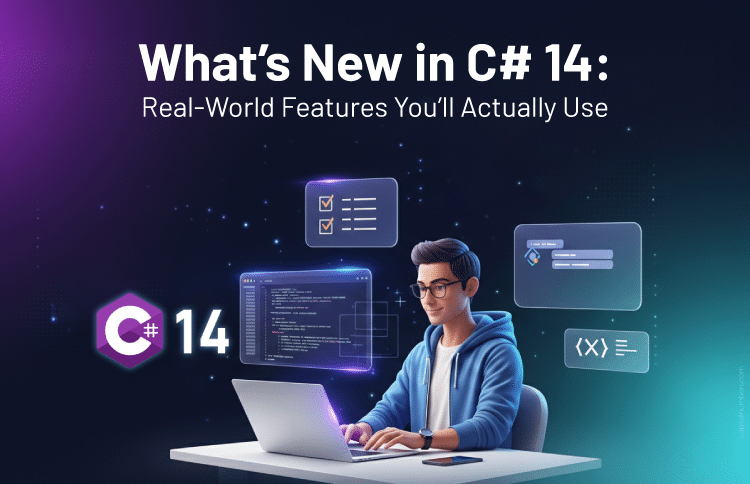AI-Powered Learning: Why It’s the Future of Online Education
Table of Contents
Artificial Intelligence (AI) is rapidly changing online education, making learning more personal, efficient, and accessible. In 2025, the global AI in education market is projected to reach $8.30 billion, growing at a compound annual growth rate (CAGR) of 31.2% from 2025 to 2030 (Source: Grand View Research).
This growth is driven by AI-powered learning platforms that customize lessons for each student. By adjusting to individual needs, these platforms help learners focus on their challenges and learn comfortably, improving engagement and outcomes.
Beyond personalization, Artificial Intelligence encourages curiosity and deeper understanding by providing timely feedback and support. As online education expands, adopting AI tools becomes essential for institutions, organizations, and learners looking to stay ahead.
Want to know in detail? Here, we will explore key components, applications of AI in education, challenges, and more. Read on.
Key Components of AI-based learning systems

Several key technologies power AI-based learning platforms, helping students learn more effectively and teachers support them better. Let’s explore these important components:
Machine Learning Algorithms
Machine learning allows learning platforms to understand how each student learns. By analyzing their progress and responses, it adjusts lessons to fit individual needs. This creates a unique learning path for every student, enabling personalized learning with Artificial Intelligence that helps learners focus on what they find challenging and improve faster.
Natural Language Processing (NLP)
NLP is the technology that helps computers understand human language. It supports features like text-to-sound (text-to-speech), which reads lessons aloud, and sound-to-text (speech recognition), which turns spoken answers into written text. These features make learning more interactive and accessible, especially for students who learn better through listening or speaking, enhancing overall AI-powered eLearning experiences.
Predictive Analytics
Predictive analytics uses student data to predict where a learner might struggle in the future. This early warning allows the system to suggest extra help or alternative learning paths before difficulties become bigger problems. It’s a powerful way to improve success rates and is crucial to the ongoing online education transformation.
Virtual Tutors Powered by AI and Intelligent Chatbots
These AI tools act like personal tutors, available round-the-clock to answer questions, explain difficult concepts, or give feedback on assignments. They create a supportive learning environment that feels personal, even in large online classes. That’s why virtual tutors powered by AI are becoming essential in modern AI in education systems.
AR/VR Integrations
Augmented Reality (AR) and Virtual Reality (VR), combined with Artificial Intelligence, offer learners immersive environments to practice skills or explore concepts safely. For example, students can perform virtual science experiments or take virtual field trips. These realistic experiences make learning more engaging and are a big part of cutting-edge EdTech AI solutions.
Together, these technologies help build powerful AI-powered learning platforms that improve learning outcomes, increase engagement, and make education accessible to all kinds of learners.
Looking to build innovative AI-powered learning solutions?
Get AI/ML development services from Capital Numbers to design and deliver personalized, scalable, and future-ready educational platforms that transform learning experiences.
Applications of Artificial Intelligence in Education
Artificial intelligence transforms how learners engage and how educators deliver knowledge by powering smarter and more personalized experiences. Here are key ways AI in education is driving transformation:
Smarter AI Interfaces
- Learners use voice commands, chatbots, and gestures to interact with AI-based learning platforms naturally
- These interfaces make navigation easy and learning more accessible
- Real-time responses keep learners motivated and engaged
Promoting Curiosity and Critical Thinking
- Personalized learning with AI adapts lessons to help learners develop stronger problem-solving skills
- Self-paced learning encourages exploration and active participation
- Generative AI provides creative prompts and customized explanations that deepen understanding
Data-Driven Course Optimization
- EdTech AI solutions analyze learner data to personalize content and recommend resources
- Predictive analytics identify learning gaps early, enabling timely support
- Continuous updates improve course effectiveness and learner success
- AI helps educators create tailored assignments and materials based on real-time insights
Connected Learning with AI Tutors
- Virtual tutors powered by AI offer instant feedback and support around the clock
- They help learners apply concepts and strengthen critical thinking
- Integration with mobile devices enables learning anytime, anywhere
- AI-driven assistance adapts to individual needs for more effective support
These innovations in AI-powered learning are making education more personalized, interactive, and impactful for learners worldwide.
Why Artificial Intelligence Is the Future of Online Education?
The growth of Artificial Intelligence in education is driving a major shift in how people learn online. Here are the reasons AI will shape the future of online education:
Expanding Access with AI-Powered Learning Platforms
AI-based learning systems allow schools and organizations to offer quality education to learners anywhere, no matter where they live or how much they have. These platforms use smart technology to deliver personalized lessons and support, helping to make education more fair and accessible. This is a key part of the ongoing online education transformation.
Reducing Teacher Workload with AI-Powered Solutions
AI automates time-consuming tasks such as grading, attendance tracking, and plagiarism detection, allowing educators to focus more on teaching and student engagement. By streamlining administrative work, AI-powered learning enhances efficiency and creates more room for personalized instruction.
Supporting Continuous Skill Development with Personalized Content
Artificial Intelligence helps learners keep their skills up to date by offering short, focused lessons right when they need them. By analyzing how learners study, AI delivers content tailored to each individual, making AI in eLearning flexible and effective.
Creating Inclusive Learning Environments
AI technologies like speech recognition and language translation make learning easier for students with disabilities or language barriers. This helps AI-powered learning platforms reach and support more learners.
Encouraging Collaboration through Smart Grouping
AI analyzes learner profiles, performance, and interests to form well-matched study groups. This promotes meaningful peer interaction, knowledge sharing, and teamwork – even in fully online learning environments.
These advances highlight why AI in education is becoming essential to modern learning. By making education more personalized, accessible, and effective, AI is shaping a smarter and more inclusive future for learners everywhere.
Challenges in Implementing AI in Education
While the benefits of Artificial Intelligence in education are clear, its implementation comes with several challenges. Schools, institutions, and technology providers must address these to ensure responsible and effective use. Here are some of the most pressing issues:
Protecting Student Data and Privacy
AI-based learning platforms collect and analyze large amounts of student data to personalize learning. However, protecting this data is critical. Institutions must follow strict privacy laws like GDPR and FERPA to ensure that learners’ personal information is secure and not misused. Without strong data protection, trust in EdTech AI solutions may decline.
Avoiding Algorithmic Bias and Ensuring Fairness
AI systems learn from data, and if that data reflects social or cultural biases, the technology can unintentionally reinforce them. This can impact fairness in AI-based learning systems, leading to unequal opportunities for students. Developers must continuously audit and improve their models to make AI in eLearning fair and inclusive for all learners.
Balancing Automation with Human Connection
Although virtual tutors powered by AI and automated tools can provide scalable support, they can’t replace the empathy, encouragement, and mentorship that human educators offer. The future of education lies in blending AI-based learning systems with human insight to create meaningful and emotionally supportive learning environments.
Infrastructure and Accessibility Barriers
Advanced AI-enhanced eLearning experiences often require reliable internet connections, powerful devices, and in some cases, AR/VR hardware. Many learners, especially in remote or under-resourced regions, may not have access to this infrastructure, creating a digital divide. For personalized learning with AI to reach everyone, accessibility must be a top priority.
How to Prepare for an AI-Driven Future in Education?
As AI-powered learning becomes a central part of education, educators and learners need to adapt to maximize its benefits. Here are the key steps to prepare for the evolving landscape of AI in education:
Develop AI Literacy
Educators and students should build a foundational understanding of AI technologies and their role in learning. Familiarity with AI-based learning systems and EdTech AI solutions helps users leverage these tools effectively and responsibly.
Choose Personalized Learning with AI
Adopting systems that offer tailored learning paths empowers learners to study at their own pace and focus on areas needing improvement. Educators should support this by integrating AI-enhanced eLearning experiences into their teaching methods.
Balance Technology with Human Guidance
While virtual tutors powered by AI provide valuable assistance, human mentorship remains crucial. Preparing for the future means finding the right mix of AI automation and personal interaction to foster motivation and empathy.
Invest in Digital Infrastructure
Schools and institutions need to ensure reliable internet access, modern devices, and technical support to run advanced AI tools smoothly. This infrastructure supports seamless adoption of AI in eLearning and immersive technologies like AR/VR.
Promote Continuous Upskilling
With Artificial Intelligence accelerating changes in skills demand, learners and educators should engage in ongoing training. Using AI-powered learning for microlearning and skill development keeps everyone ready for future challenges.
Preparing proactively for an AI-driven future ensures education remains engaging, inclusive, and effective for all learners in this era of rapid technological change.
Real-World Examples of AI Powering Education
Real-world examples help you understand the scenario better. Considering this, here are some key case studies that show how AI is making learning smarter and more personalized.
Case Studies from Leading AI-Powered Learning Platforms
- MindGrasp.ai
MindGrasp.ai is an AI assistant that simplifies complex topics, summarizes key ideas, offers quizzes, and helps learners apply what they’ve learned with easy, personalized guidance. - Khan Academy’s Khanmigo
Khanmigo is an AI tutor powered by GPT-4 that guides students with thoughtful, step-by-step help. It encourages learning through exploration rather than just answering.
Success Stories of AI-Powered Virtual Tutors
- CogniSpark AI
CogniSpark AI is an AI-powered assistant that breaks down difficult concepts, highlights important points, provides practice exercises, and supports learners with simple, personalized help to boost understanding. - Querium StepWise AI
StepWise AI provides step-by-step support in solving math and science problems. It gives immediate feedback to help students learn from their mistakes in real time.
You May Also Read: Artificial Intelligence vs. Human Intelligence: Key Differences
Bottom Line
AI is playing a vital role in transforming online education by making learning more personalized and effective. AI and new learning technologies are changing how education is delivered and experienced.
Adopting AI tools and immersive technologies is becoming essential for institutions and learners to keep up with these changes.
Investing in AI-driven education platforms and solutions is the way to stay at the forefront of innovation. At Capital Numbers, we offer AI/ML development services to help you build the future of learning. Reach out to us to get started.


















